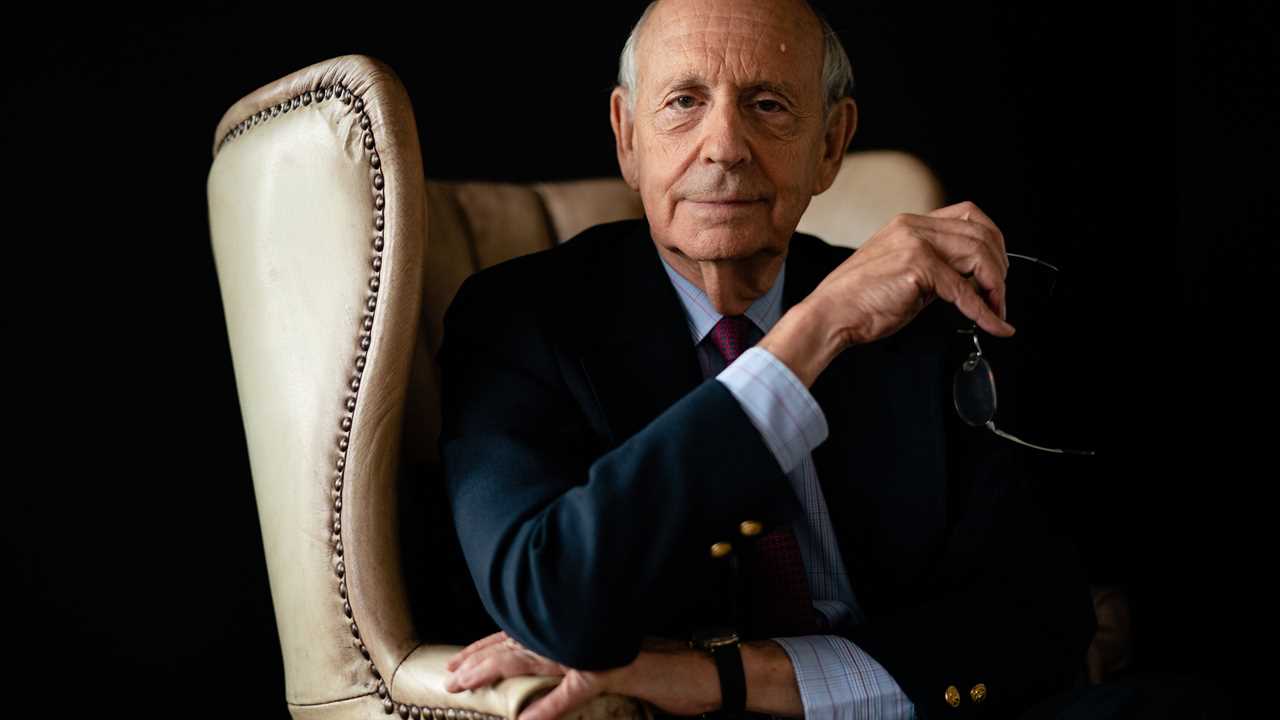
WASHINGTON — Justice Stephen G. Breyer says he is struggling to decide when to retire from the Supreme Court and is taking account of a host of factors, including who will name his successor. “There are many things that go into a retirement decision,” he said.He recalled approvingly something Justice Antonin Scalia had told him.“He said, ‘I don’t want somebody appointed who will just reverse everything I’ve done for the last 25 years,’” Justice Breyer said during a wide-ranging interview on Thursday. “That will inevitably be in the psychology” of his decision, he said.“I don’t think I’m going to stay there till I die — hope not,” he said.Justice Breyer, 83, is the oldest member of the court, the senior member of its three-member liberal wing and the subject of an energetic campaign by liberals who want him to step down to ensure that President Biden can name his successor.The justice tried to sum up the factors that would go into his decision. “There are a lot of blurred things there, and there are many considerations,” he said. “They form a whole. I’ll make a decision.”He paused, then added: “I don’t like making decisions about myself.”The justice visited the Washington bureau of The New York Times to discuss his new book, “The Authority of the Court and the Peril of Politics,” scheduled to be published next month by Harvard University Press. It prompted questions about expanding the size of court, the so-called shadow docket and, inevitably, his retirement plans.The book explores the nature of the court’s authority, saying it is undermined by labeling justices as conservative or liberal. Drawing a distinction between law and politics, Justice Breyer wrote that not all splits on the court were predictable and that those that were could generally be explained by differences in judicial philosophy or interpretive methods.In the interview, he acknowledged that the politicians who had transformed confirmation hearings into partisan brawls held a different view, but he said the justices acted in good faith, often finding consensus and occasionally surprising the public in significant cases.“Didn’t one of the most conservative — quote — members join with the others in the gay rights case?” he asked in the interview, referring to Justice Neil M. Gorsuch’s majority opinion last year ruling that a landmark civil rights law protects gay and transgender workers from workplace discrimination.Justice Breyer made the point more broadly in his new book. “My experience from more than 30 years as a judge has shown me that anyone taking the judicial oath takes it very much to heart,” he wrote. “A judge’s loyalty is to the rule of law, not the political party that helped to secure his or her appointment.”That may suggest that judges ought not consider the political party of the president under whom they retire, but Justice Breyer seemed to reject that position.He was asked about a remark from Chief Justice William H. Rehnquist, who died in 2005, in response to a question about whether it was “inappropriate for a justice to take into account the party or politics of the sitting president when deciding whether to step down from the court.”Daily Business BriefingLatest Updates
Updated Aug. 26, 2021, 2:18 p.m. ETAfter a shift to video, Vice Media lays off writers.The Education Department will wipe out $1.1 billion in debt for ITT students.Forbes plans to go public in a $630 million SPAC deal.“No, it’s not inappropriate,” the former chief justice responded. “Deciding when to step down from the court is not a judicial act.”That sounded correct to Justice Breyer. “That’s true,” he said.Progressive groups and many Democrats were furious over Senate Republicans’ failure to give a hearing in 2016 to Judge Merrick B. Garland, President Barack Obama’s third Supreme Court nominee. That anger was compounded by the rushed confirmation last fall of Justice Amy Coney Barrett, President Donald J. Trump’s third nominee, just weeks after the death of Justice Ruth Bader Ginsburg and weeks before Mr. Trump lost his bid for re-election.Liberals have pressed Mr. Biden to respond with what they say is corresponding hardball: expanding the number of seats on the court to overcome what is now a 6-to-3 conservative majority. Mr. Biden responded by creating a commission to study possible changes to the structure of the court, including enlarging it and imposing term limits on the justices.Justice Breyer said he was wary of efforts to increase the size of the court, saying it could erode public trust in it by sending the message that the court is at its core a political institution and result in a tit-for-tat race to the bottom.“Think twice, at least,” he said of the proposal. “If A can do it, B can do it. And what are you going toBy: Adam Liptak
Title: Justice Breyer on Retirement and the Role of Politics at the Supreme Court
Sourced From: www.nytimes.com/2021/08/27/us/politics/justice-breyer-supreme-court-retirement.html
Published Date: Fri, 27 Aug 2021 09:00:14 +0000
Read More
 UK PoliticsWorld PoliticsVideosPrivacy PolicyTerms And Conditions
UK PoliticsWorld PoliticsVideosPrivacy PolicyTerms And Conditions
